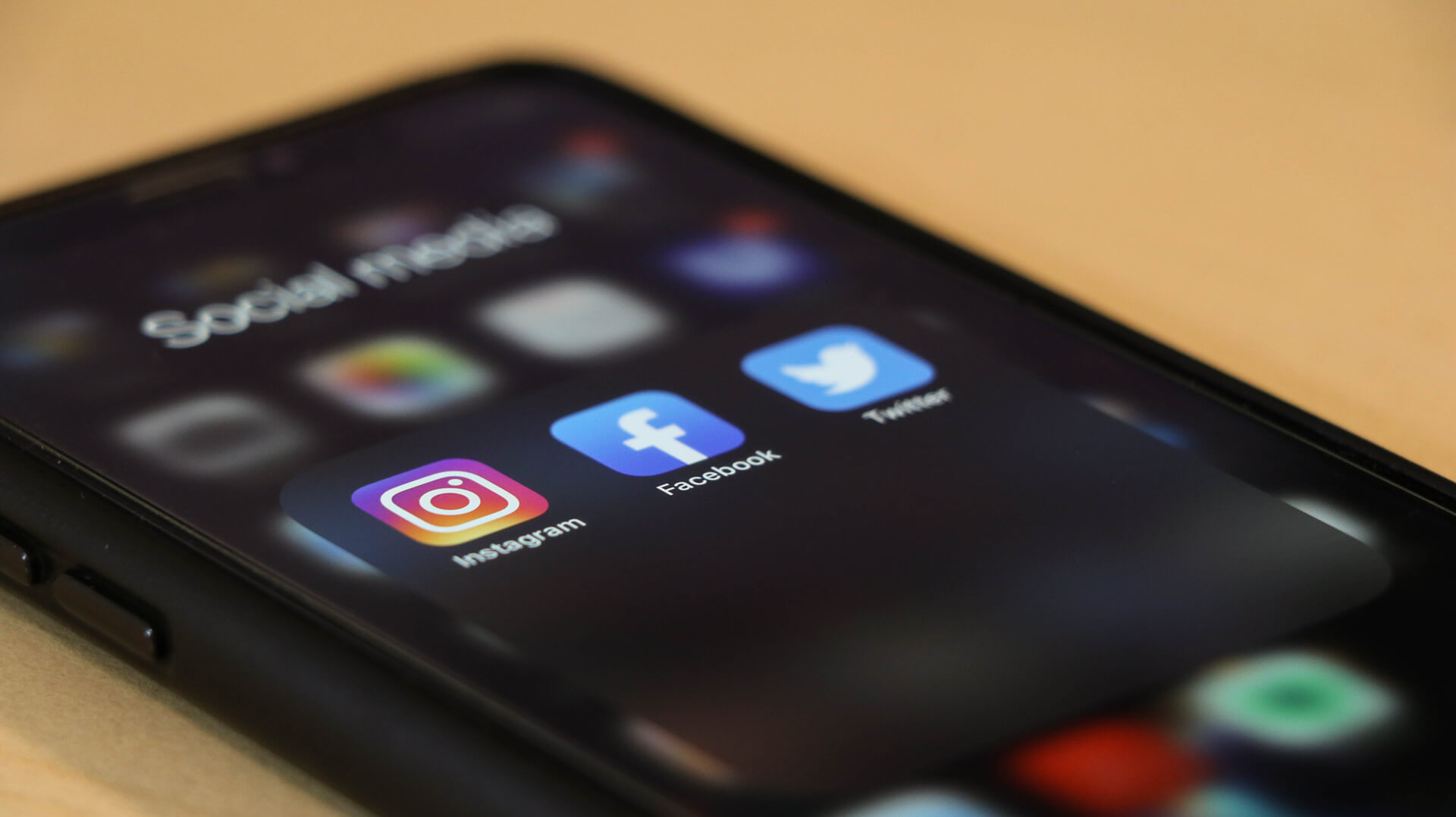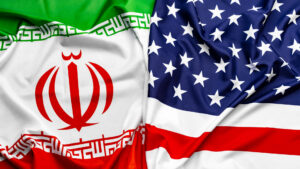Read the other installments in this series:
Life after Trump, Part I: Living in the Lightning
Life after Trump, Part II: Searching for Truth in a Flood of Freedom
Life After Trump, Part III: The End of the Republican Alliance
Life After Trump, Part IV: Building a Better Democrat…Maybe
Life After Trump, Part V: The Opening Roster
Life After Trump, Part VI: The Crisis List—Russia
Life After Trump, Part VII: The Crisis List—The Middle East
Life After Trump, Part VIII: The Crisis List—China
Starting within minutes of the January 6 riots, a variety of tech platforms began blocking posts by President Donald Trump. Within three days nearly all platforms – a list which includes Twitter, Facebook, Reddit, Twitch, Shopify, Spotify, Google, YouTube, Instagram, SnapChat, TikTok, Discord, even Pinterest – had enacted restrictions, in many cases, lifetime bans, on multiple members of Trump’s inner circle’s communication capabilities and/or product sales. The one exception – Parler – was instead blocked from being offered on the Apple store and purged from Amazon Web Service’s server systems, functionally killing Parler as a company. Parler’s site went down January 11. Perhaps for good.
Techworld’s stated logic for the bans is pretty straightforward. All publicly declared they had monitored planning for the violence January 6 on their platforms, and so had cooperated with federal law enforcement to counter it. When the violence happened anyway, techworld took another look and saw follow-on plans to deepen and broaden the violence and in many cases, use said platforms to organize and communicate about said violence. In techworld’s mind, the bans were the only logical action they could take.
Outrage from those of the hard Right was expectedly fierce, with charges of censorship echoing throughout the media, both traditional and new. It is difficult for me to sympathize, and not simply because of what happened January 6: Within minutes of AWS’ announcement, folks on Parler were using the platform to plot attacks on AWS server farms. I’d have shut it down too.
Free speech in the United States is not absolute. There are many carve-outs, but three are relevant when evaluating the aftereffects of the events of January 6.
First, and perhaps least importantly, while you have the right to speak your mind, you do not have the right to be listened to or respected, nor the right to speak on someone else’s place or time. The first enables me to utterly ignore most of what Bernie Sanders says (except for its entertainment value), and the second enables techworld to block Trump and folks like him from their platforms. Neither Sanders nor Trump have legal recourse here as neither immunity from my laughter nor platform access are Constitutional rights.
Second, and far more importantly, you do not have the right to incite violence. Way back when in 1919 the Supreme Court ruled that speech either designed to cause violence or speech that could be reasonably expected to lead to violence is flat-out illegal and punishable with jail time. It’s called the Clear and Present Danger principle.
Rudy Giuliani’s “trial by combat”, Donald Trump Jr’s “we’re coming for you”, and Trump’s weeks-long encouragement of his supporters to show up in DC January 6 to disrupt the election certification are all very nearly textbook examples of non-protected – in fact, criminal – speech. So much so that all will likely be included into future law-courses as actual textbook examples. (Fun fact: The Clear and Present Danger principle was first manifested by the Supreme Court to codify the punishment of a socialist. Trump is in some weird historical company.)
Third, you do not have the right to publish falsehoods that you know are falsehoods, especially should such falsehoods cause reputational or economic harm. Such actions come under a mix of libel, slander, and defamation laws. Trump is very familiar with slander laws as in his pre-presidential days he sued pretty much everyone he did business with under their umbrella.
It appears to me that Sidney Powell, part of TeamTrump’s efforts to overturn the election, is less familiar. She has done a bang-up job of crafting assertions about what happened in the elections. Her (catastrophic) mistake was to segue from general delusions about the election being ruined by foreign Communists and rogue Republicans and a Venezuelan ghost and lizardmen and aliens from Tau Ceti e to specifically asserting Dominion Voting Systems has knowingly tampered with voting. (Fun fact: only one of the above is hyperbole.) She did so without producing a single shred of proof. That obviously is slander and obviously causes reputational and economic harm. So, Dominion sued her on January 8 for $1.3 billion in damages. I expect Dominion to (very easily) win the case, most likely resulting in Powell’s permanent disbarring and most likely reducing her to permanent penury. (Unless of course the Tau Cetians pick her up and take her home.)
What Trump and Powell and others in Trump’s inner circle have done are not political views. These are political lies specifically intended to warp the American system and inflict personal harm upon others. Having things like this melon-scooped out of public life doesn’t bother me one iota. Countering such statements isn’t censorship because what’s being countered isn’t protected speech.
So why has it gotten so bad?
Two reasons. The first has to do with technology.
Back in the 1970s we all watched the same news programs. We obviously interpreted the information provided through different personal, geographic, and ideological lenses and came to different conclusions, but with everyone working from the same information, the splits in American society weren’t very…splitty.
Fast forward to today. The evening news is over half prescription drug commercials. People source their news from Twitter and Facebook. Twitter only gives you what you ask for. Facebook aggressively funnels you to ever more esoteric and focused feeds. Gone is broadcasting. All that’s left is narrowcasting. We are no longer beginning from the same trough of information. Of course, we are disagreeing more. Add in the omnipresence of social media, and of course extremist speech is more common.
The second issue is one of law.
Our pre-existing communication laws as regards things like falsehood and libel were designed for the world of newspaper and television. The singular meaningful update for the Digital Age occurred with the 1996 Telecommunications Decency Act. Of key relevance is something known as Section 230, a clause which indemnifies any provider of digital services from any slander or incitation to violence which occurs on their platforms. Section 230 rules that digital platforms are not publishers like Nightline or the Wall Street Journal, but instead simply platform providers, and so are not legally liable for what their users do.
Put simply, you can lie and scream and plot on Facebook or Twitter and no matter what you say or do, Facebook and Twitter face zero criminal repercussion.
Section 230 was designed for email and discussion blogs. It was written a decade before Facebook and Twitter. Social media of the type that dominates current information exchange wasn’t even a glimmer in Steve Jobs’ eye. Mark Zuckerberg was only 22. Things like libel laws have not caught up. Congress has neglected to even pick up the issue. And since Section 230 is fundamentally about First Amendment rights and legal responsibilities, only Congress has the Constitutional power to decide what is and what is not protected speech, as well as what the platforms should and can and should not and cannot ban.
This puts contemporary society in an uncomfortable place. The shift from broadcasting to narrowcasting has prioritized speed and pizzazz. Broad legal indemnity means no one has a financial or legal interest in context or accuracy. This shift has weakened our critical thinking capacity at the same time making us utterly reliant upon our own internal hooey detectors to determine what is true and what is false, all the while under constant assault from libtards, neckbeards and conspiracy theorists of all flavors.
It’s infuriating. It’s exhausting.
For those of you on the Right, do you believe the election was fraudulent? Because not a single – not one – piece of evidence has been presented in court or the public sphere that has withstood the scrutiny of a third grader. For those of you on the Left, did you think that the 2020 Black Lives Matters protests were huge? Because they weren’t. If you exclude the first week of the protests (and Portland which perpetually exists in a state of societal breakdown) there wasn’t a single day where the total number of people protesting nationwide exceeded 100,000. Rallies in DC regularly top several times that figure.
The shift from broadcasting to narrowcasting has weakened our ability to see the truth of things even when the real facts are right in front of us. And that takes some people down some seriously odd rabbit holes.
Let me give you an example of just how wackadoo things have gotten:
For those of you who don’t follow the more eclectic side of American conspiracy wackiness, the QAnon conspiracy world claims there is a global Satanic cabal of child slavers and molesters that counts Democratic lawmakers as among their chief architects and that only the moral purity of Donald Trump can save us. Some versions claim the leaders of said cabal are in reality lizardmen, while others assert said cabal has engineered coronavirus so that they can use the pretext of vaccination to inject everyone with microchips to better select their child targets. Like I said: wackadoo. QAnon, at the moment, is protected speech. Considering the implications for politics and health and public safety and the reputations of the real lizardmen, it should not be.
Until Congress establishes new guidelines, everything that is said on social media exists in a legal grey area. With the exception of sex trafficking and child pornography, nothing is expressly banned. For the platforms, the result has been to take a very light hand to monitoring. Facebook has been slow at even taking down ISIS beheading videos. And since the standards are legally nonexistent, elected officials have been granted the benefit of the doubt.
Trump and those around him have taken advantage of the leeway, repeatedly ignoring pre-existing norms and laws. Twitter in particular has noted that Trump has violated their Terms of Service many, many times and that the only reason they had not suspended his account before January 6 was that Trump was the sitting president and so his tweets enjoy a different evaluation standard. Twitter further made it clear that should the tone and content of Trump tweets persist after January 20 that they wouldn’t hesitate to ban him. From a certain point of view “all” the events of January 6 did as regards Trump-related bans was to speed up the process and use a slightly larger dragnet than what was already going to kick in the week after Biden’s inauguration. But let’s make this abundantly clear: Twitter is under no legal obligation to do so.
Regardless of what happens to Trump, the people who rioted thinking Trump had their back were not elected to high office and so are far less shielded. The FBI is treating the death of Capitol Police officer Brian Sicknick at the hands of the rioters as a murder of one of their own. Yes, murder. His skull was bashed in with a fire extinguisher, and then he was dragged from the Capitol and beaten to death by the crowd in a full-on Fallujah-style horror. One rioter even struck him repeatedly with a pole…that had the American flag on the other end. This. Is. Not. Free. Speech. The bureau has pulled out the stops in hunting them down.
It hasn’t been much of a hunt. The mob’s belief in their immunity led them to film and selfie almost every aspect of their crimes and then post it all on Twitter, Facebook and Parler. Such actions not only pushed Twitter and Facebook over the line into enacting their bans (and prompted Apple and AWS to ban Parler from their systems), but also made it soooooooo eeeeeeasy for the FBI to identify the perpetrators. Or, as the FBI has classified them, terrorists. But, again, let’s make this absolutely clear: the mob’s discussion and posting of assault plans on social media platforms and their subsequent posting of Sicknick’s murder do not themselves constitute illegal acts. The FBI is simply viewing the posts as both announcements of crimes.
I have no problem drawing a line between what is permissible in public discourse and what is not. My problem is not the drawing of the line. What I have a problem with is who draws the line.
So long as Section 230 is in place, it is up to the new media platforms and only the new media platforms to decide when and where and how and if to block any specific post or user. They have become both the providers and the regulators of the public domain. They chose to communicate with federal law enforcement about the rioters descending upon DC. They chose to deplatform those who were inciting general acts of and planning specific acts of violence. They were not legally required to do so, nor would they have been criminally liable had they chosen not to act.
And yet social media is absolutely part of – perhaps even the root of – the problem. Facebook’s own internal research indicates that 64% of the time a user joins an extremist Facebook group, it is because Facebook recommended the group to the user. This is the same Facebook that scrapes every bit of personal data it can get from your computer and phone and then sells that data to scammers, complete with a data analysis of what sorts of scams Facebook thinks you are most likely to fall for. An eager purchaser of said data and analytics is the Russian bot farm. I trust the implications of that are fairly obvious.
Do I think that techworld did the right thing in the aftermath of the January 6 riots? Most definitely. Political violence should have no role whatsoever in American society and I applaud anyone who takes such a stance.
Do I think techworld is getting better? A bit. At the same time Twitter et al was banning Trump, it has also started (timidly) blocking more traditional peddlers of lies. Tweets from Chinese government accounts at how much better China’s genocidal policies have made life for Uighurs have been deleted, as have tweets out of Tehran that US and UK coronavirus vaccines are designed to hurt Iranians. In this Wild West of information, someone needs to be the sheriff, and Twitter seems to be cautiously, reluctantly, baby-stepping forward.
But do I trust techworld to be the guardians of our means of communication, especially when it comes to things like accuracy? Most definitely not. The “truth” is often not a clear line. I recognize we need a line, but drawing that line is neither techworld’s responsibility nor their strength. That responsibility is ours, and that of our elected representatives in Congress. Until Congress acts, this is the reality we are trapped within.
I don’t mean to suggest for one second that a solution is easy. Because no matter what Congress aims for – amending Section 230, breaking up the tech firms, turning their platforms into public utilities, etc. – the core question of who has the power to regulate content remains. Resolving this is the tech issue for the United States for the next few years.
Now normally I’d not bother with this sort of piece. The intersection of media and new media and the First Amendment and regulation are clearly a pot of domestic issues heavy on the hornets. I normally steer well clear of precisely this sort of passion-laden topics. Not this time, and not simply because of what happened January 6.
My concern is that we have been here before.
The last time we were introduced to a new technology that changed our relationship with information, it was the telegraph. In less than two decades, we went from it taking six months to Oregon Trail information across the country to instantaneous tapping via wire. Reporters just started making stuff up to sell papers. Some of it was pretty funny. Until it wasn’t. A particularly ethically unfettered journalist by the name of Joseph Pulitzer decided Spain was a good target. His “reporting” agitated for war, and in April 1898, war he got.
Today, the United States has largely withdrawn its forces from the world. In the aftermath of Iraq and Afghanistan, America has had years to rest, recover, recruit, and rearm. I’ve recently found myself saying that anyone stupid enough to pick a fight with the United States deserves what they get. I always thought that Americans were smart enough to tell fact from fiction. To know when they are being manipulated. The past few years have proven me wrong again and again and again. I really don’t want the United States to launch a conflict because of social media bullshit. The damage we could do to ourselves and others would be incalculable. Social media isn’t (just) about cat videos and your grandchildren’s pictures. It has become geopolitical.
One final point. There is an assertion among rightest Republicans that techworld is liberal and that the Trump purge from the platforms is a coordinated effort to shape the national conversation. I agree with the first half of the assertion. Most of techworld is based in Silicon Valley. I do not agree with the second. The effort to reshape the conversation is far more diffuse, but also far broader than merely techworld. The entire business community is in play.
Before the day was out January 6 a veritable avalanche of business associations ranging from the National Association of Manufacturers to the American Bankers Association to the American Petroleum Institute to the Business Roundtable had publicly called upon Vice President Mike Pence to use the Constitution’s Article 25 to force Trump from office. And that on top of a raging waterfall of direct condemnations from individual firms and CEOs. All in all, we are talking about tens of thousands of firms representing the majority of the American business community.
American politics have changed. And now America’s political parties are changing with them.
Coming soon:
Life After Trump, Part III: The End of the Republican Alliance
If you enjoy our free newsletters, the team at Zeihan on Geopolitics asks you to consider donating to Feeding America.
The economic lockdowns in the wake of COVID-19 left many without jobs and additional tens of millions of people, including children, without reliable food. Feeding America works with food manufacturers and suppliers to provide meals for those in need and provides direct support to America’s food banks.
Food pantries are facing declining donations from grocery stores with stretched supply chains. At the same time, they are doing what they can to quickly scale their operations to meet demand. But they need donations – they need cash – to do so now.
Feeding America is a great way to help in difficult times.
The team at Zeihan on Geopolitics thanks you and hopes you continue to enjoy our work.








